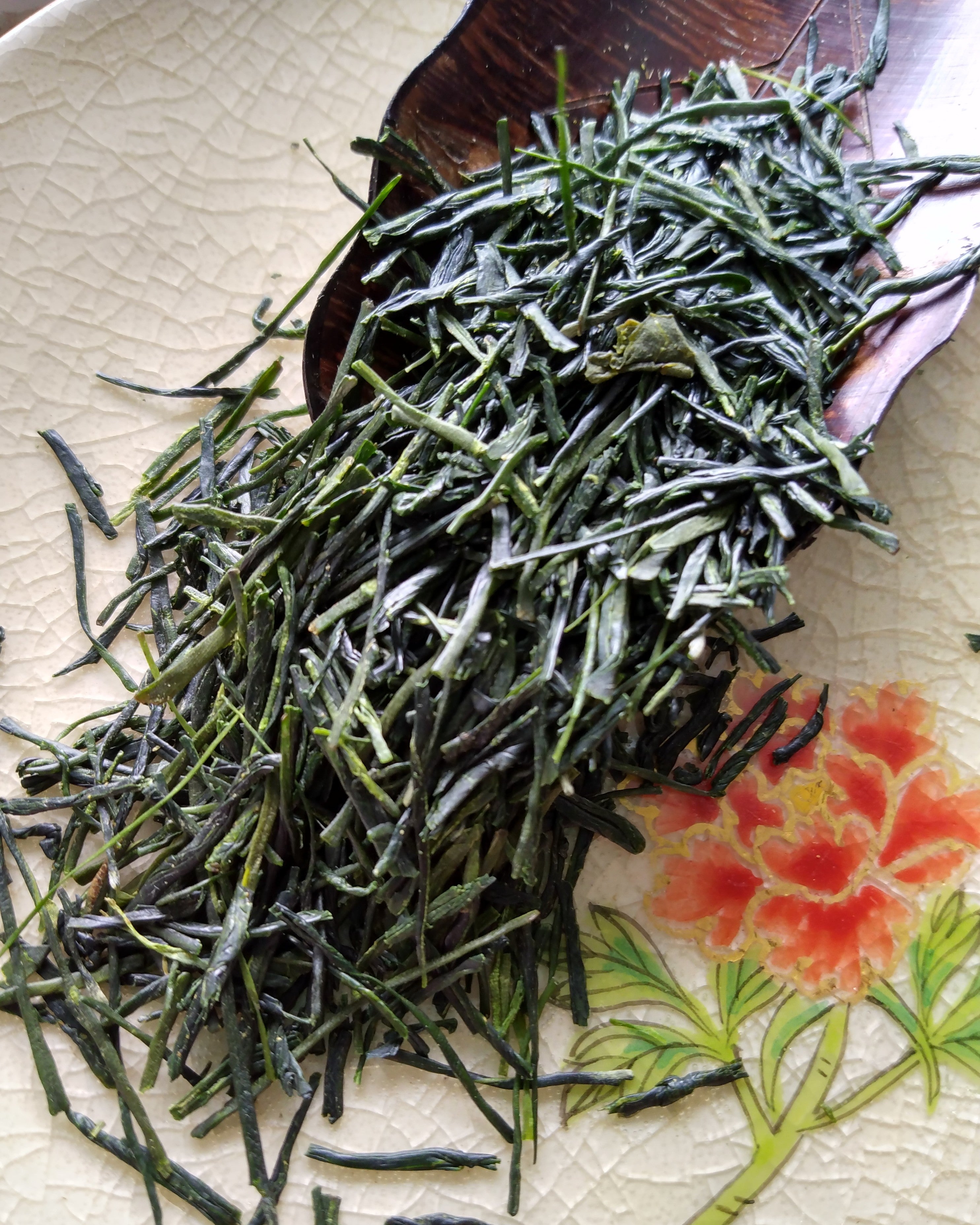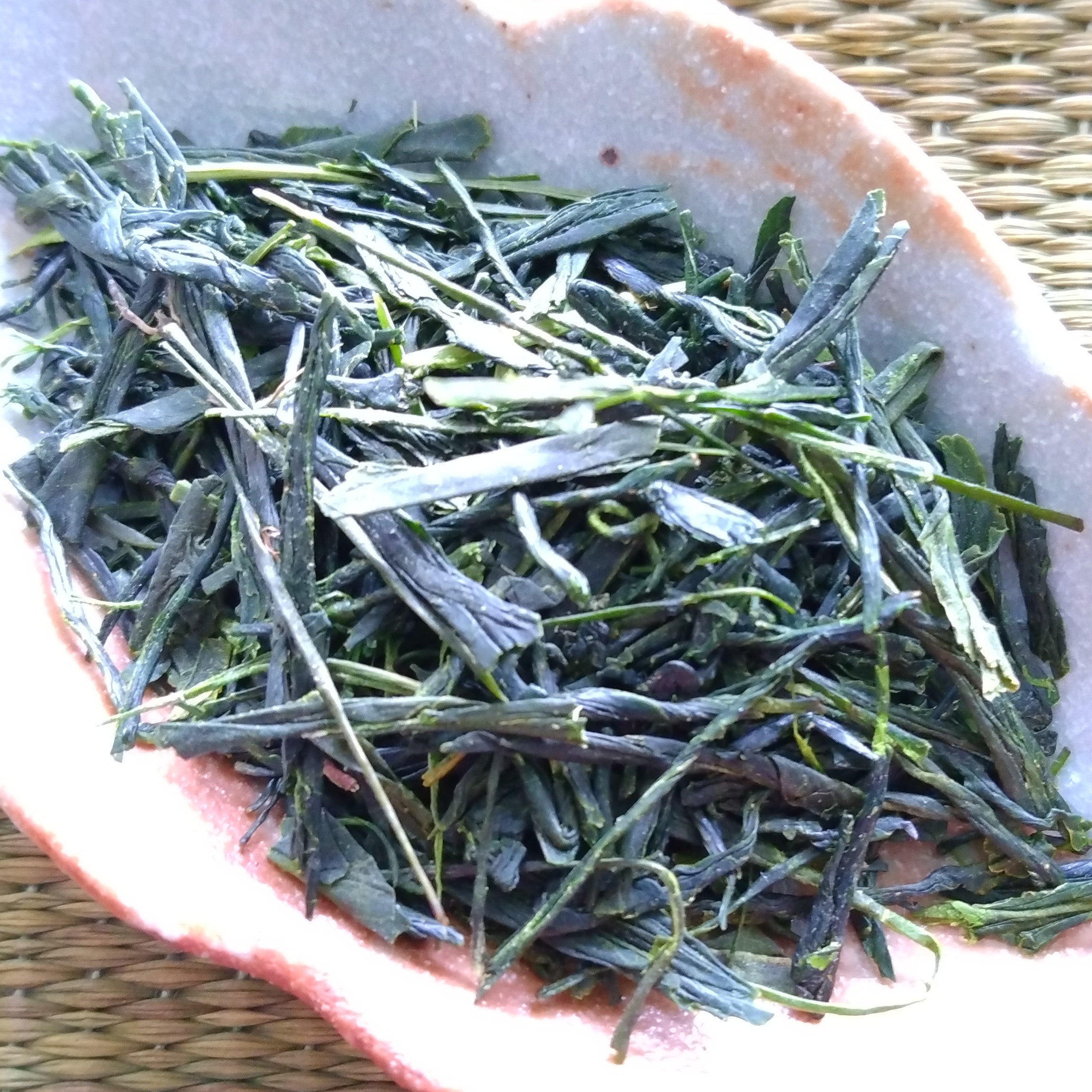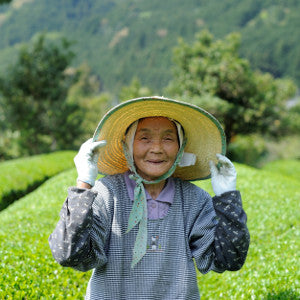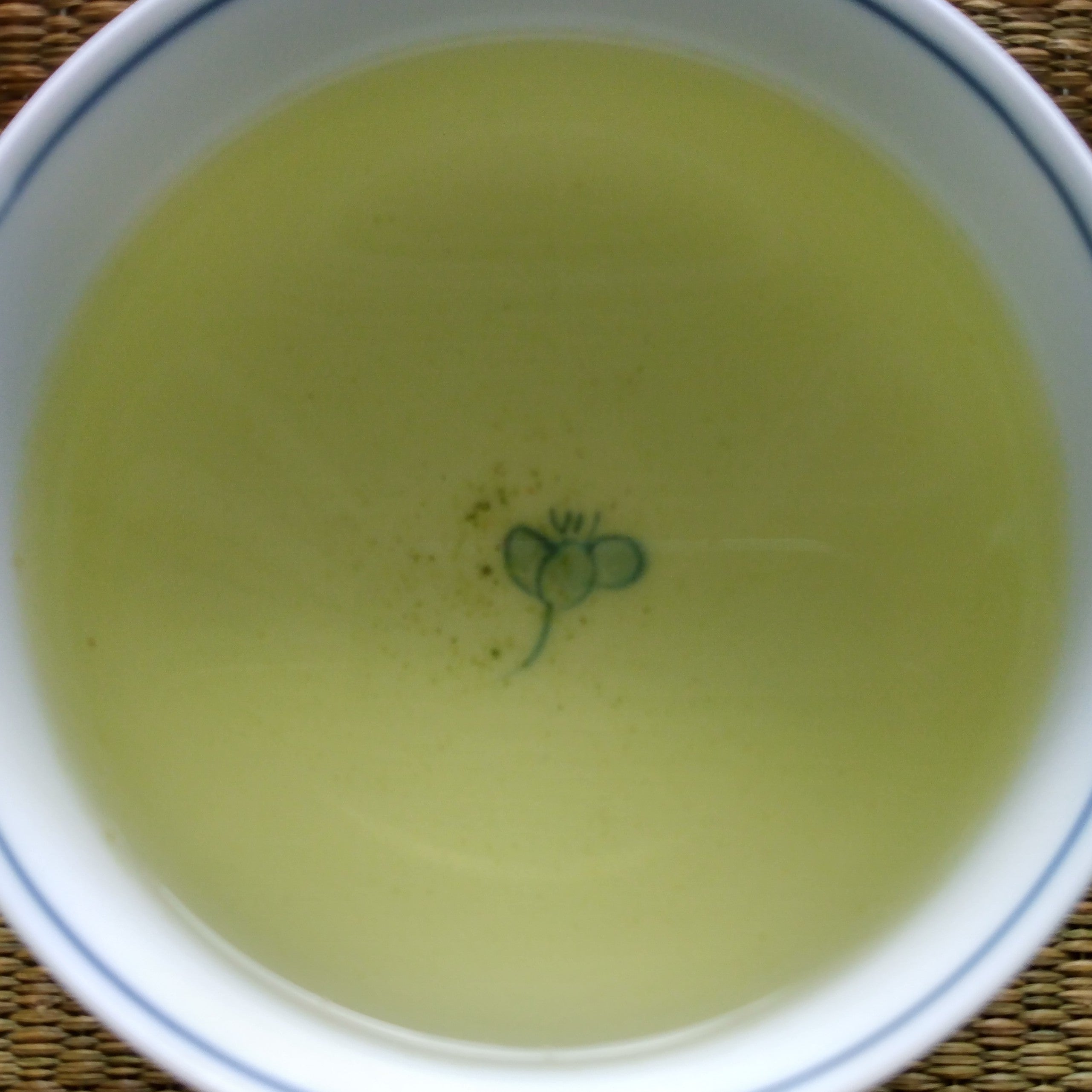Description
Tosa-cha Sencha; Nyugauchi, Kochi Pref., Shikoku. 50g. 2024 Shincha (New Harvest Tea). Naturally grown with no chemical fertilizers or pesticides.
Origin: Nyugauchi, Aki-shi, Kochi Prefecture.
Cultivar: Yabukita
Early infusions have marine air notes in both aroma and taste, with mild-medium astringency. This tea produces a number of infusions, with a variety of tastes, with mellow notes and slight sweetness in later infusions. It is a tea that takes a bit to get to know, but rewards the drinker with a variety of taste experiences. Grandmother Komatsu "Obaachan" is 96 years old this year and still active in the family tea business, located on their family tea farm on a slope in the deep mountains of Kochi Prefecture. She lets the younger family members do the heavy work of the tea farm, but still with packaging and "supervising", as well as tending her garden and still doing lots of cooking. Per the family, "We drink this tea every day with our meals. It is naturally grown in gorgeous Kochi weather under plenty of rain, fully raised naturally without any chemical fertilizer. That's why the aroma and taste are so gentle...."
Tosa Han (Tosa Province) is the feudal era name of the region comprising present-day Kouchi Prefecture, on the island of Shikoku. It covers a good portion of the southern and western ends of the island; facing out to the Pacific Ocean, but also with considerable mountain and valley area in the interior. It is not well-known, even in Japan, as a tea growing region; but I was surprised to learn that even during the Edo Period (1600-1868,) under the rule of the Yamauchi Clan; tea was produced and sent as an export item of the province to Osaka as part of the growing merchant economy of the time.
Much of Tosa Tea is grown in the Niyodogawa River Valley, in western Kouchi, but this tea, however, is grown on the eastern side of the prefecture in an area called Nyugauchi, east of the city of Aki, at the upper basin of the Ioki River. This mountainous region has the prerequisites for good tea growing in Japan; river valleys that have appropriate climate changes from morning to evening, good rainfall, and rich soil.



